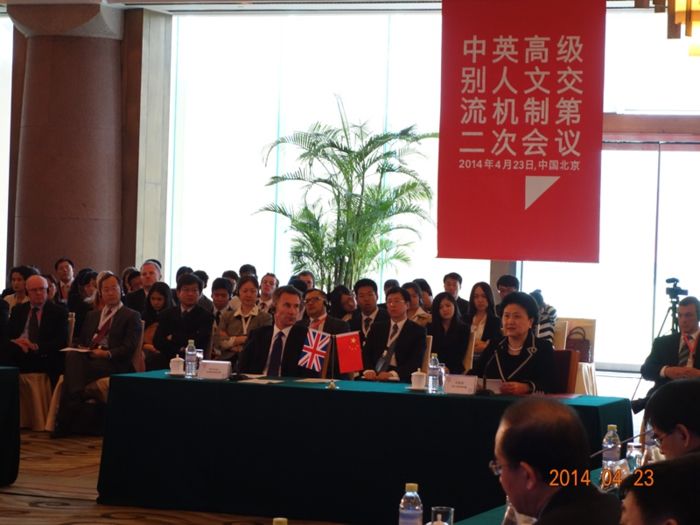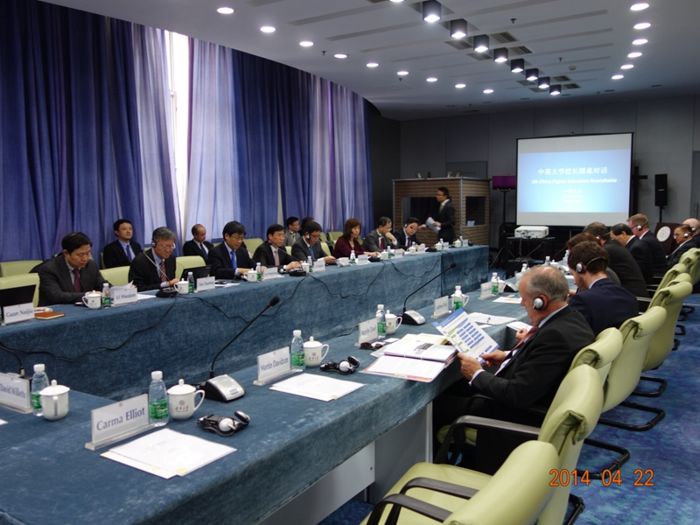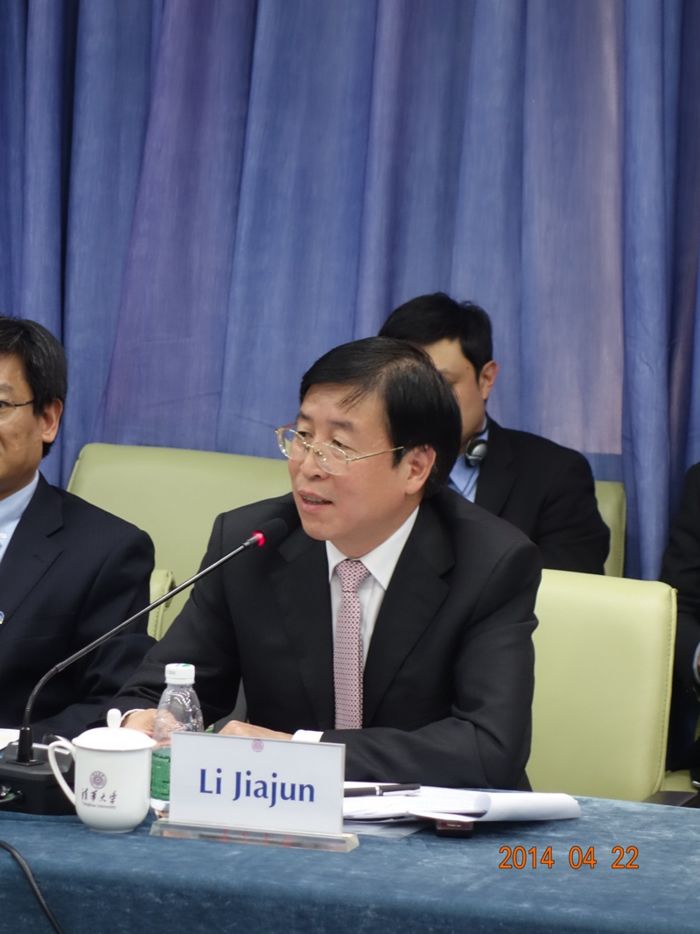TJU President Attends the Events of the China-UK High-Level People-to-People Dialogue
2014-04-25



On April 23, 2014, the Second Meeting of the China-UK High-Level People-to-People Dialogue was held in Beijing. Tianjin University (TJU) President Li Jiajun attended the events of the meeting, including the UK-China University Presidents Roundtable, the 7th China-UK Education Summit, and the Second Meeting of the China-UK High-Level People-to-People Dialogue.
The meeting was jointly hosted by Conference Chairs Liu Yandong, Vice Premier of China's State Council, and Jeremy Hunt, UK’s Secretary of State for Health. The theme of this year’s meeting was "Sharing the Future through Exchanges and Mutual Learning". Li Keqiang, Premier of China's State Council, also sent letters of his endorsement of the meeting, which were read in the conference by Vice Premier Liu.
The meeting is the first of its kind held in China since the establishment of the China-UK High-Level People-to-People Dialogue. More than 100 representatives from the two countries attended the event, including those from areas of education, culture, sports, research, as well as student representatives. President Li met with TJU student representatives during the meeting.
The UK-China University Presidents Roundtable was held on April 22, involving over 20 representatives from British higher education and Embassy, headed by Minister for Universities and Scientific Research David Willetts, and leaders and representatives from 13 Chinese universities including TJU. The three themes for the roundtable werebuilding a modern university system, cooperation between universities and industries, and UK-China educational cooperation and joint talent training. Vice Minister of Education Hao Ping and Minister Willetts delivered welcome addresses. Subsequently, TJU President Li gave a keynote speech on the theme of “building modern university system”. He reviewed the history of Chinese modern university systems and the current development of higher education. Chinese universities, taking TJU as an example, have been closely connected to the country’s developmental plan and social needs ever since their foundations. At the same time, the government leadership has also been attentive to the developmental needs of the universities. TJU President Li especially pointed out that since China’s reform and opening up, Chinese higher education, under governmental support, has developed dramatically. The number of colleges and universities has increased from approximately 700 to over 2,400, with the number of students jumping from 1.14 million to 34 million. He mentioned that with the development of socio-economic awareness, universities have taken on more social responsibilities. It is urgently needed for the universities to improve quality, intensify development, build modern university systems, and straighten out the relationship between university, government, and society. To achieve this goal, government should shave administration and delegate more power for the universities to make their own decisions about higher education. At the same time, universities should streamline their governance structure and improve their quality to better serve the society. For further enhancement of cooperation in higher education between UK and China, President Li pointed out that both sides need to expand their cooperation with their respective governments and join efforts in government, society and university support. President Li suggested the two countries deepen their collaboration and increase bilateral cultural exchanges. After his speech, university leaders of both countries held an enthusiastic discussion based on the three themes of the roundtable. After their discussion, President Li gave concluding remarks.
During the 7th China-uk Education Summit, President Li and Timothy O’Shea, Principal and Vice-Chancellor of the University of Edinburgh reported the discussions of UK-Chinese university leaders on further promotion of cooperation, expressing their interest in promoting collaboration between universities, and university and industry, as well as their hopes to promote UK-China people-to-people exchanges.
